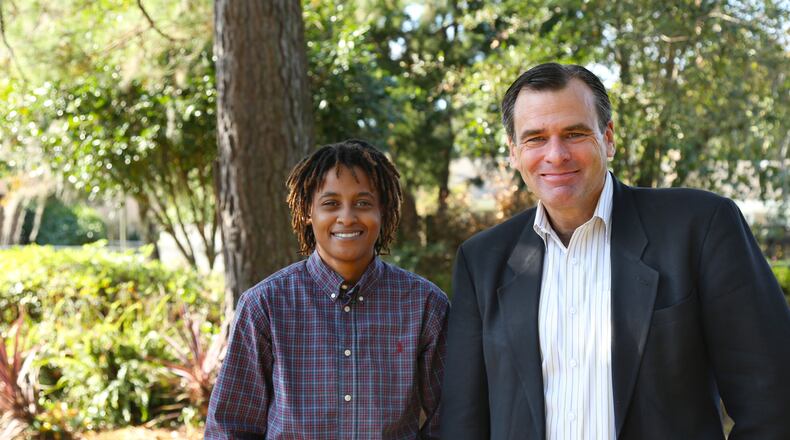The U.S. Supreme Court on Monday refused to hear a Georgia woman’s claim that the Civil Rights Act prohibits workplace discrimination against gays and lesbians.
The high court’s decision not to hear Jameka Evans’ appeal was somewhat surprising because there is a split among the nation’s courts on the issue.
In March, the federal appeals court in Atlanta ruled against Evans, who contended she was fired from her job at Georgia Regional Hospital in Savannah because she's lesbian. But a month later, the appeals court in Chicago became the first in the nation to rule that gays and lesbians are a "protected class" under Title VII of the Civil Rights Act. It said discrimination on the basis of sexual orientation is a form of sex discrimination.
And in September, the appeals court in New York heard arguments in a case brought by a skydiving instructor who said he was fired from his job because he’s gay. That case, still pending, could ultimately be accepted by the Supreme Court.
Evans’ lawyer, Greg Nevins of Lambda Legal, said the high court’s refusal to hear his client’s case only delays the inevitable, because a split in the circuits will cause confusion across the country.
“This was not a ‘no’ but a ‘not yet,’” Nevins said. “The vast majority of Americans believe that LGBT people should be treated equally in the workplace. The public is on the right side of history. It’s unfortunate that the Supreme Court has refused to join us today, but we will continue to invite them to do the right thing.”
A coalition of 76 businesses and organizations, including Apple, CBS, Facebook, Google, Morgan Stanley, Starbucks and Viacom, had asked the Supreme Court to hear Evans’ case and rule that discrimination protections extend to LGBT people.
“There is no truth to the notion that laws forbidding sexual orientation are unreasonably costly or burdensome for businesses,” the coalition’s brief said. “To the contrary, recognizing that Title VII prohibits sexual orientation discrimination as a form of sex discrimination would strengthen and expand benefits to businesses.”
This includes the ability to recruit and retain top talent; generate innovative ideas by drawing on a greater breadth of perspectives; and attract a diverse customer base, the coalition said.
In March, the 11th U.S. Circuit Court of Appeals in Atlanta said it was bound by a decades-old precedent that said a Gulf Oil employee's "discharge for homosexuality" did not violate federal law.
Over the years, Congress has rejected numerous attempts to give Title VII protections to LGBT people, Judge Bill Pryor wrote in a concurring opinion.
As for the courts, their province is to decide what the law is, not to declare what it should be, Pryor said. “If the law is wrong, it should be changed, but the power for that is not with us.”
About the Author
The Latest
Featured




